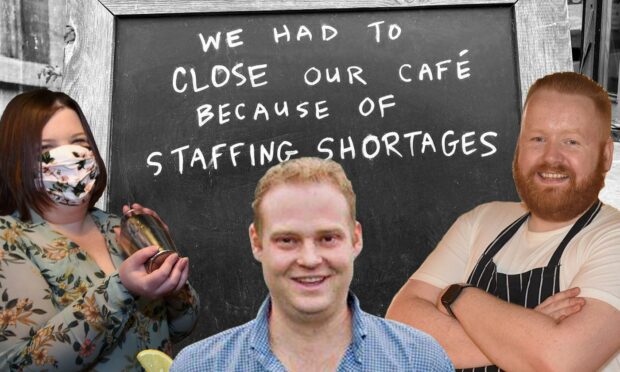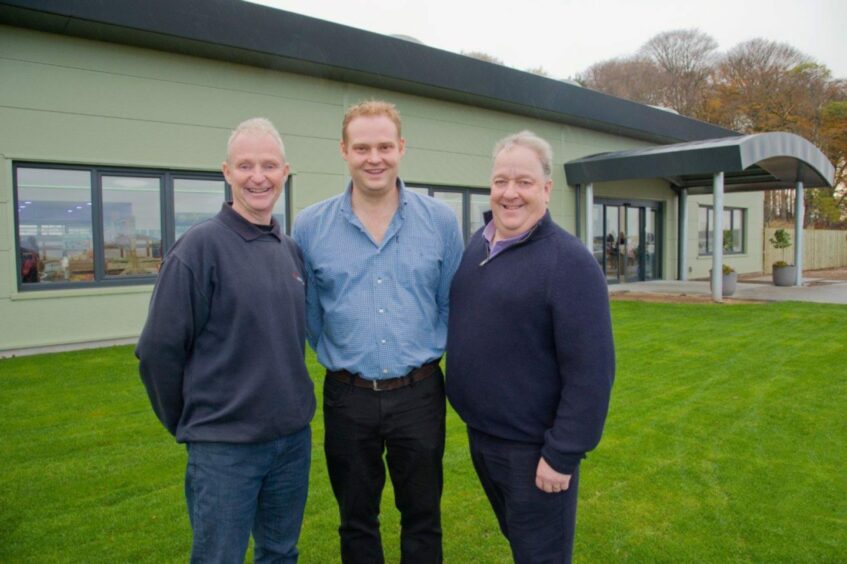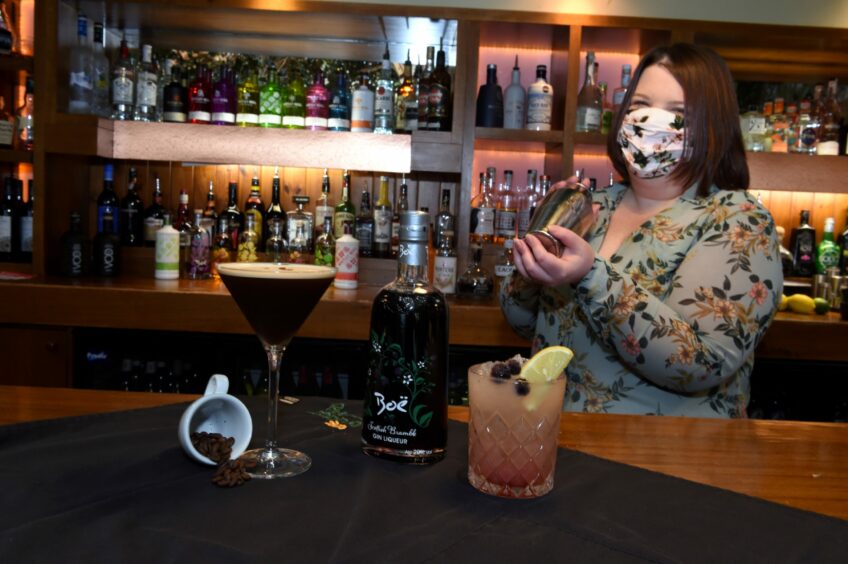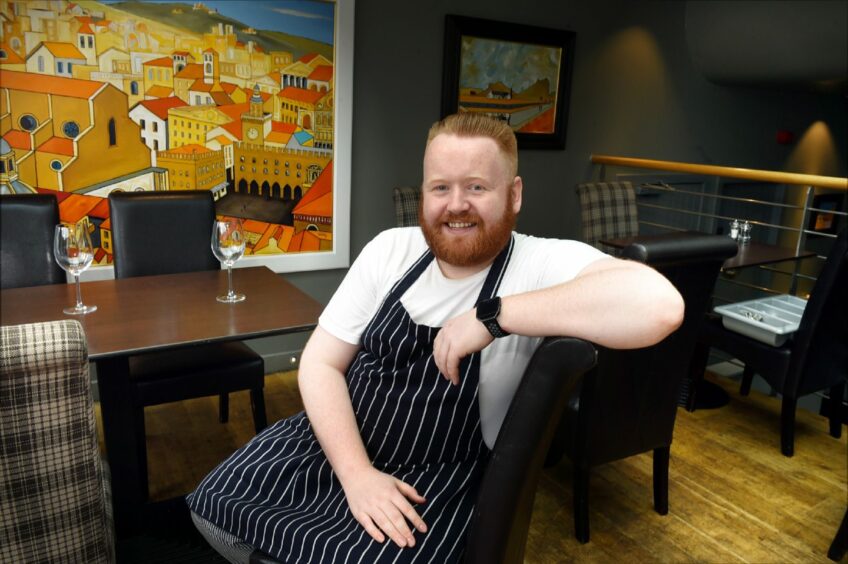Ben Laing, the owner of the Threaplands Garden Centre in Elgin, can’t pick out a specific incident that led to him venting his frustration on Facebook last month.
Instead, his post was more the result of a constant drip-drip of resentment directed at overworked staff in the centre’s restaurant.
“We haven’t lost you your life savings, we haven’t caused you irreversible pain, we haven’t insulted you,” Ben wrote on Monday February 14.
“The most we have done is got your order wrong and had to replace it, perhaps not served the dish to your taste or taken a bit more of your time than you wanted to give us.”
Elsewhere in the nearly 800-word post, Ben spoke scathingly of customers being rude despite being told the restaurant was short-staffed, and the crushing effect the negativity had on his young employees.
Most telling, he warned that the constant judgment and lack of respect put the future of hospitality at risk.
The restaurant industry, he wrote, could disappear because of “the attitude of the minority to workers in the hospitality sector who have been targeted as an easy punch bag.”
The rise of the anger brigade
Looking back now, Ben remembers the frustration.
And though he is quick to point out that the majority of his customers are kind and considerate, he feels there is an increasingly vocal minority quick to cast blame.
“Post-Covid, there’s been a spilt,” explains Ben.
“One on hand there are customers who have become more tolerant. On the other hand, there is the anger brigade.
“They seem to think that the world is against them,” Ben says. “I don’t know if it’s anything to do with hospitality, but it feels there is just an overall feeling of discontent about the world.”
A reckoning for hospitality
Covid-19 flattened the hospitality industry. Forced into numerous lockdowns, sometimes with minimal notice, the sector hemorrhaged jobs.
Hospitality staff, of which 70% are paid below the living wage, faced an even more uncertain future.
Even today, as Scotland moves towards the lifting of all Covid restrictions on March 21, the future for hospitably remains uncertain.
In January, the Scottish Tourism Alliance commissioned a survey of hospitality and tourism businesses that found more than two-thirds reporting financial difficulties.
One in three businesses, the STA concluded, are likely to fail before the end of the year.
The mix of pressures is pushing hospitality staff out of the industry at a time when employee shortages are at acute levels thanks to the coronavirus as well as Brexit.
Insiders are concerned that the stress of facing down angry customers could push more staff to leave.
‘We need to pay our staff more money’
“Difficult customers who are expecting things to be back as they were, are not helping the situation,” says Andrea Nicholas, the head of a new campaign from Green Tourism to protect vulnerable hospitality staff.
Backed by the Scottish Tourism Alliance as well as Inverness luxury retreat Achnagairn Estate and Oban’s Loch Melfort Hotel, the Care to Make a Difference campaign is calling on hospitality venues to aid falling retention levels by looking out for vulnerable employees and increasing wages.
“We need to pay our staff more money, because they’re leaving the industry to go work for higher paid jobs in call centers or shops,” Andrea says.
Anna Hirvonen, the accreditation officer for pressure group Living Wage Scotland, adds that hospitality staff are among the most at risk from ongoing increases in the cost of living.
“That’s another big part of the parcel,” says Hirvonen, who warns that hospitality staff in the Highlands & Islands are the most vulnerable.
“At the moment, obviously, that impacts employers, but it also impacts employees.”
A patchy recovery
What isn’t helping shortages is the bittersweet irony that after such a prolonged shutdown, some hospitality venues are busier than ever.
Ben at Threaplands says his current business is about 20% up on the same time in 2020, before the coronavirus hit.
Lucy Castle, the owner of the Braided Fig restaurant in Aberdeen, is busy all the time except for weekday lunch.
“We’re getting there,” Lucy says.
But the recovery appears patchy.
Kyle Jackson, the head chef at Café 52 reports that the Aberdeen city centre restaurant is back to full strength, and has taken on more staff.
But he adds that it’s hard to predict what nights will be busy.
“There are some nights that you expect to be absolutely hoaching,” Kyle says.
“But you’re finished by 10 o’clock.”
What everyone wants to avoid is another lockdown like the one that caught hospitably unawares last Christmas when the Scottish government curtailed movement amid the Omicron variant spike.
Kyle says the restrictions pulled the rug out from under the feet of the industry.
Meanwhile, he blames the cancellation of office parties by the Scottish Government for putting his previous employer, No. 1 Bar and Grill, out of business last month.
“That was that was a big shock to me,” Kyle says of the restaurant’s demise.
“It definitely knocked me for six. But it was all because December was shaping up to be a really good December, and then nothing.”
Give a little respect
The overriding emotion, however, is that the general public acknowledge the hard work and pressure hospitality staff are under at the moment.
Especially after so many restaurants and bars remained operational throughout the pandemic lockdowns to continue serving their communities.
“I wrote [the Facebook post] because I wanted people to be more understanding and show us a bit of respect,” Ben says.
“There’s a complete lack of respect for people in hospitality.”




